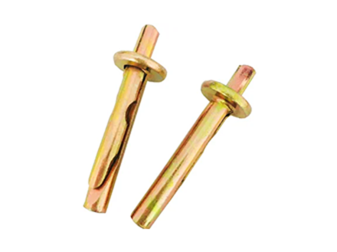Oct . 13, 2024 17:45 Back to list
Exploring the Importance and Applications of Door Screws in Home Improvement Projects
Understanding Door Screws Types, Sizes, and Applications
When it comes to the structural integrity and security of doors, door screws play a pivotal role. Often overlooked, these small yet essential fasteners have a significant impact on the functionality and durability of doors in both residential and commercial settings. This article will explore the various types, sizes, and applications of door screws, helping you to understand their importance and how to choose the right ones for your projects.
Types of Door Screws
1. Machine Screws These are commonly used in metal hinges and door frames. Machine screws have a uniform diameter and require a pre-tapped hole. They are versatile and come in various lengths and materials, making them ideal for different applications.
2. Wood Screws Designed specifically for fastening wood components, wood screws have a tapered body and a sharp point, allowing them to penetrate wood easily. They often feature coarse threads for a better grip, making them suitable for attaching door hinges to wooden doors.
3. Sheet Metal Screws These screws are designed to fasten thin metal sheets, making them useful for securing door hardware to steel or aluminum doors. They typically have a flatter head and are available in various materials, including stainless steel and zinc-coated options, to prevent corrosion.
4. Security Screws In an age where security is paramount, using security screws can help deter unauthorized access. These screws often feature unique heads that require specialized tools for removal, making them a preferred choice for high-security applications.
Sizes and Measurements
Door screws come in various sizes, which can significantly influence their effectiveness. The size you choose should depend on several factors, including the type of door, the material of the door frame, and the weight of the door itself.
- Length Door screws typically range from 1 inch to 4 inches. For standard interior doors, 1.5 to 2.5 inches is common, while heavier external doors may require longer screws to ensure a secure hold.
door screws

- Diameter The diameter of the screw is also crucial
. A thicker screw can bear more weight but may require a pre-drilled hole, especially in hardwood. Standard diameters for door screws fall between 8 and 12, but it's essential to match the screw to the hardware being installed.- Material The material of the door screw affects its performance and durability. Stainless steel screws are ideal for outdoor applications due to their resistance to rust and corrosion, while brass screws offer a decorative finish for interior applications.
Applications of Door Screws
Door screws are used in a variety of applications beyond just attaching hinges. Here are some common uses
- Installing Door Hinges Properly chosen screws ensure that door hinges are securely fastened, preventing sagging or misalignment over time.
- Mounting Locks and Latches Security features such as deadbolts and handles require screws that can sustain significant force when the door is in use.
- Hanging Hardware For doors with additional features such as peepholes or door closers, the integrity of the screws used is paramount to overall performance.
- Adjusting and Repairing Doors Over time, doors may settle or warp. Replacing old screws with longer or thicker ones can help realign misaligned doors.
Conclusion
In conclusion, door screws, though small, are a vital component in ensuring the performance, safety, and durability of doors. By understanding the different types, sizes, and applications, you can make informed choices that enhance your project. Whether you are a DIY enthusiast or a professional contractor, paying attention to the details of door screws can lead to better results and longer-lasting installations. Always remember to choose the right screw for your specific needs to ensure your doors function smoothly and securely.


